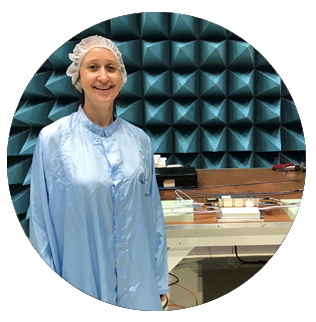
 Describe a typical day at your job
Describe a typical day at your jobIn my role, I need to follow-up both technical and administrative aspects of a particular project. On a daily basis, there can be a meeting with the engineers from a Belgian institute that develop an instrument to fly on Venus. The next hour there can be a review for the delivery of thermal blankets from a Portuguese company for an instrument that will detect exo-planets. When there is no meeting planned, then I might be reviewing a proposal for e.g. a Polish instrument that will be embarked on a mission to Jupiter or an experiment that involves measurements of the brain after a flight of an astronaut. There needs to be time as well for reviewing our contracts with the institutes and universities.
The diversity of the job. My section is involved in projects related science, earth observation and microgravity. The role requires a combination of technical and managerial skills together with the soft skills in “getting things done”. The frequent interaction with delegations across Europe makes the role unique within the Agency.
The workload is high as I oversee ca. 180 projects with a team of four people. We try to deliver quality at a high timeliness.
I submitted my application for Experiment System Engineer to the ESA PRODEX Office and I passed the interview and test. I applied for the deputy Head of Office role and successfully passed the interview and test. The deputy role has now transitioned in the Section Head role.
The coming 10 years, the PRODEX programme will still exist and it might gain popularity among the existing Participating States which will lead to more activities to be implemented across Europe. The challenge of the space industry and institutes will be to find qualified engineers with a space engineering background. The technical support and training provided by European Space Agency is paramount to bring these space projects to a success. My advice is to make the engineering studies attractive for the younger generation by starting as early as possible i.e. at the junior schools (lager onderwijs). Math courses could be more interesting to some if concrete applications are given.
I wanted to be a pilot from age of 12 so I knew math and science were my priority. Later on, I studied industrial engineering in electronics at the Erasmus Hogeschool in Brussels. When I was in my final year, I discovered that one could become also an aerospace engineer which was closer to my passion for flying. I continued then for another 4 years at the Delft University of Technology and there I obtained my Masters in Aerospace Engineering.
You need to have a good set of soft skills to deal with various people with a different cultural background. Therefore, communication – verbal and in-writing- is very important in this job.
The skills come by practicing. There exist courses that are helpful. I followed a conflict management training, a mediation training and a course specific on how leaders shall communicate with impact.
The projects that give me the greatest satisfaction are the ones where I am able to work with highly motivated and skilled team. This was for me the PROBA- Vegetation mission as System Engineer at QinetiQ Space . Also, the development of the Lander Radioscience instrument (LaRa) for the ExoMars mission was extremely challenging. I was also responsible for the product definition and sizing for the MTG (MeteoSat Third Generation) when I worked at EUMETSAT as System Engineer. Being able to work on smaller and a large missions like MTG and JUICE are rewarding as ultimately they contribute to better understanding of life on Earth.
A job that combines international relations with technical and managerial skills. This can be still the job of pilot for a mission to the Moon 😉.
The job in the PRODEX Office requires excellent interpersonal skills and a background (Master or higher) in engineering or physics. It is advised to have a working experience in industry for 4 to 5 years.